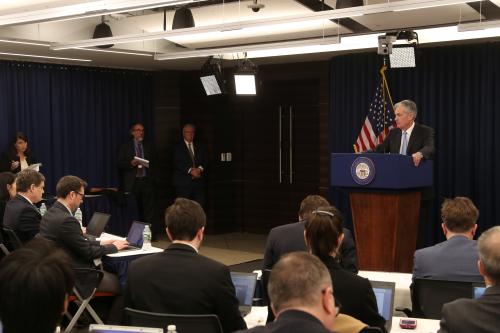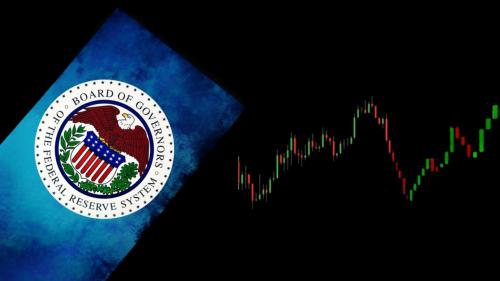“While significant progress has been made to strengthen our financial system, I believe the [Dodd-Frank] Act did not go far enough,” Minneapolis Fed President Neel Kashkari said in remarks at Brookings this week. “I believe,” he continued, “the biggest banks are still too big to fail and continue to pose a significant, ongoing risk to our economy.”
At the event, sponsored by the Hutchins Center on Fiscal & Monetary Policy at Brookings, Kashkari called attention to the “Too Big to Fail” (TBTF) problem, that is, financial institutions that are so large that their failure could seriously harm the U.S. or even global economy. “Now is the right time,” he said, “for Congress to consider going further than Dodd-Frank with bold, transformational solutions to solve this problem once and for all.” Continuing, he said:
Although TBTF banks were not the sole cause of the recent financial crisis and Great Recession, there is
no question that their presence at the center of our financial system contributed significantly to the
magnitude of the crisis and to the extensive damage it inflicted across the economy.
Watch full video of Kashkari’s remarks:
Kashkari was joined in the discussion by Hutchins Center Director David Wessel, who moderated the discussion; Brookings Senior Fellow Donald Kohn; and Gary Stern, former president of the Federal Reserve Bank of Minneapolis.
Kohn, a former vice chairman of the Federal Reserve Board of Governors, said that while he agreed with Kashkari’s objective, he wasn’t sure he agreed with Kashkari’s premise that we haven’t done enough. “One reason we had to intervene the way we did [in the 2008 financial crisis],” Kohn said, “was because we didn’t have enough tools; the system was too fragile. Now you have the resolution regime, Title II of Dodd-Frank.” Kohn went on to say that:
Before you say let’s break up the big banks—use government to intervene in the private sector in a way that’s pretty major, that is, taking a private entirely and breaking it into different pieces—I think you have to convince me that what’s been put in place won’t work.
Stern called attention to the importance the “living will” process available in the Dodd-Frank legislation. (A living will is a company’s “strategy for rapid and orderly resolution in the event of material financial distress or failure of the company.”) “I think,” Stern said, “the key in the current legislation to effectively dealing with Too Big to Fail is the living will process.” He added that,
I think it’s a big mistake to … underrate the potential of living wills. First of all, they are mandated by Congress, and the regulators have to approve them once they are acceptable. It doesn’t require any additional legislation; it doesn’t require getting into political battles about who ought to do what to whom. It’s in place. And if they are done well, then they are designed to limit spillovers from a problem [from] one or more major financial institutions … so that the contagion effects, the effects on the overall economy, are manageable. That’s what they are designed to do. And therefore you don’t need government to intervene to protect uninsured creditors or others.
Still, Stern concluded, “The jury is out; it’s not obvious that the [living will] proposals, once they are in place, will be adequate. But I don’t think there’s any reason to start with the presumption that they won’t be. After all, the regulators on the hook to get this right.”
Mr. Kashkari’s full remarks are available from the event’s web page. Learn more about his #EndingTBTF campaign here.



Commentary
WATCH: Minneapolis Fed’s Neel Kashkari says big banks are still a risk, and regulations haven’t gone far enough
February 18, 2016